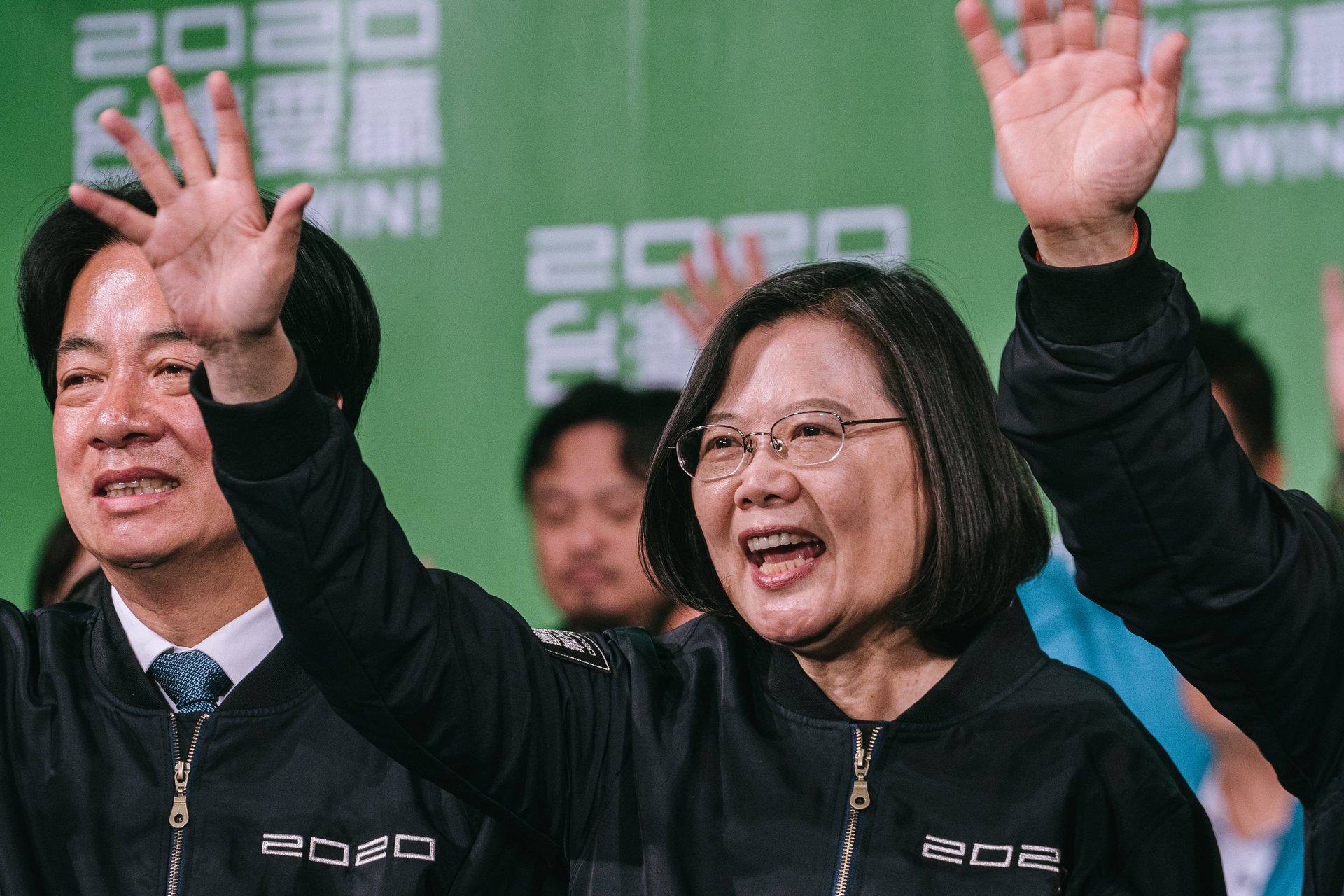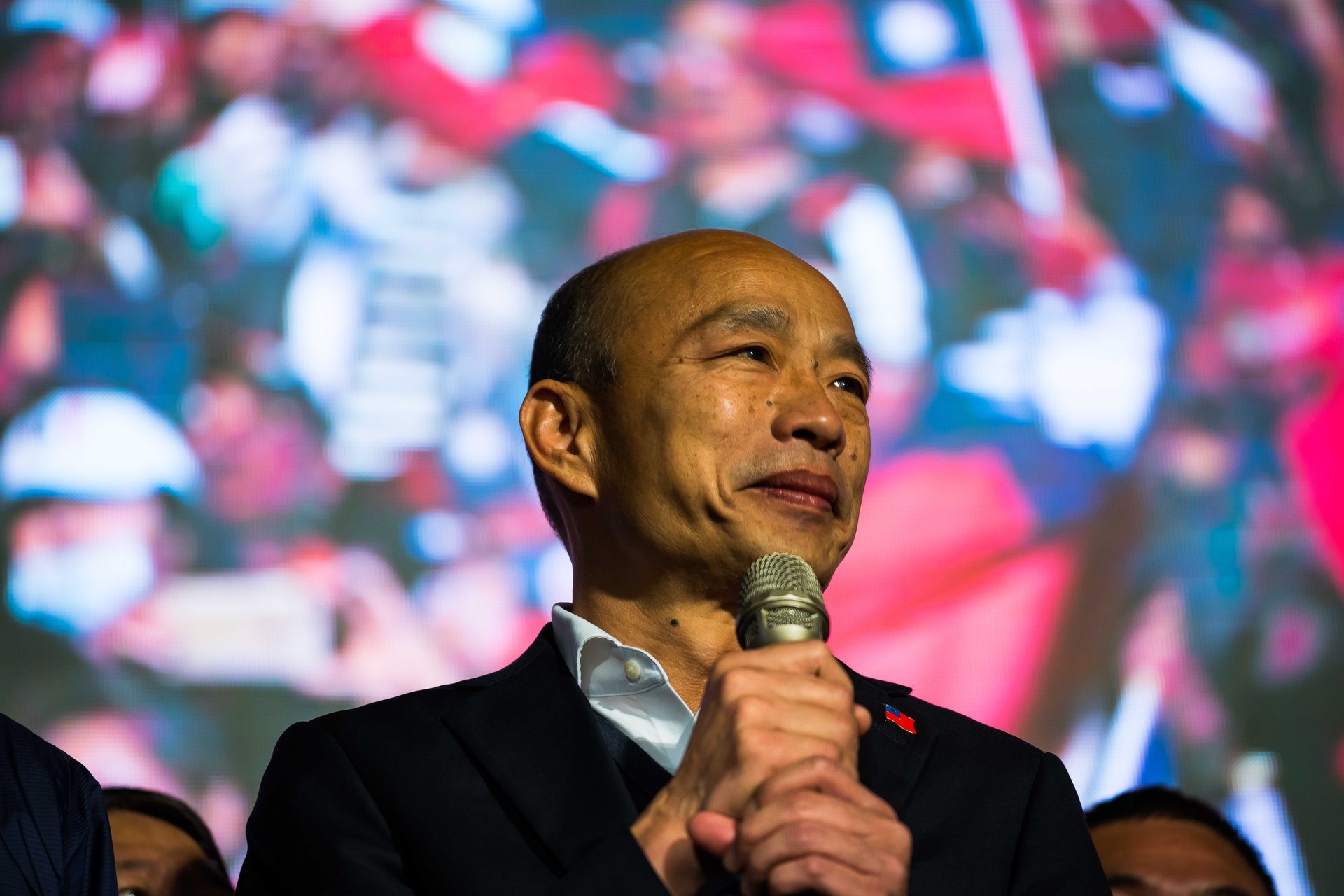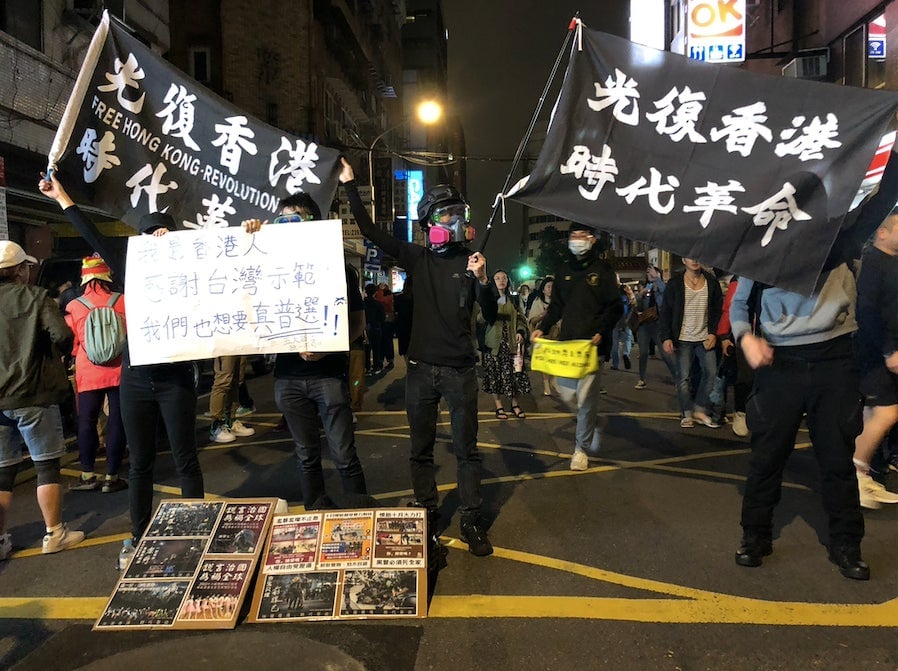Beijing’s man lost by a shocking landslide in Taiwan’s presidential election
Taiwan president Tsai Ing-wen was re-elected today (Jan. 11), in a miraculous turnaround of fortunes thanks in no small part to China’s consistent threats.


Taiwan president Tsai Ing-wen was re-elected today (Jan. 11), in a miraculous turnaround of fortunes thanks in no small part to China’s consistent threats.
Tsai won over 8 million votes, or 57% of the vote share, the biggest election victory since Taiwan held its first presidential election in 1996. Her main challenger, the Kuomintang party’s Han Kuo-yu, won 5.4 million votes. Tsai’s Democratic Progressive Party (DPP) also retained its majority in the legislative election.
Though the polls showed Tsai was the favorite to win, her large margin of victory was unexpected. A result made more shocking following the drubbing her party received in local elections a little over a year ago. In November 2018, the independence-leaning DPP lost seven of the 13 cities and counties it had held to the China-friendly Kuomintang. The result was seen as a rebuke of Tsai’s economic and social policies.

Then the Hong Kong protests happened. Taiwanese watched in fear as Beijing responded to the protests with force and violence, shattering any belief that the “one country, two systems” model by which Hong Kong is governed could ever work in Taiwan. Tsai has consistently supported the Hong Kong protests, and has allowed about 60 protesters who fled to extend their temporary stays in Taiwan, even though local law does not allow them to gain asylum.
China claims Taiwan as its own territory and has repeatedly threatened to use military might to force unification of the territories. Taiwan has never been under the control of the Chinese Communist Party. After Tsai was first elected in 2016, Beijing broke off ties with Taipei and attempted to restrict Taiwan’s economy through coercive measures, including limiting the number of Chinese tourists allowed to travel to the island. Han, currently the mayor of the southern city of Kaohsiung, promised a reset of relations with China if he was elected. He promised that warmer cross-strait relations would deliver a better economy to Taiwan.

Michael Lin, a man in his 40s who attended Tsai’s victory rally in central Taipei, said that he rejected Han precisely for that vision of an economic future dependent on China, and that the protests in Hong Kong showed him that “‘one country, two systems’ is very scary” and demonstrated the “true face” of the Chinese Communist Party.
The Taiwan election is the second electoral embarrassment for Beijing in recent months, following a resounding victory by Hong Kong’s pro-democracy candidates in local elections in November. Beijing said in response to Tsai’s victory that it “resolutely opposes” Taiwanese independence and will continue to pursue “one country, two systems” and “peaceful reunification” with Taiwan.
Taiwanese showed their support for Hong Kong at Tsai’s rally by chanting slogans including “restore Hong Kong, revolution of our times.” There were also many Hong Kongers in attendance at the rally, waving flags imprinted with that slogan. In her victory speech, Tsai was solemn and calm. She said that Hong Kongers would be happy with the election results, and also called on Beijing to cease its threats and intimidation against Taiwan.

The Hong Kong protests and China’s growing threats against both Taiwan and Hong Kong compelled many Taiwanese living overseas to come home to vote, including Jill Chou, a 27-year-old who lives in Australia. “This time I definitely had to come back to vote,” she said. “You feel like your country is going to be finished,” she added, employing the commonly used term wangguogan, or “the feeling that the country is dying” to describe her fears.